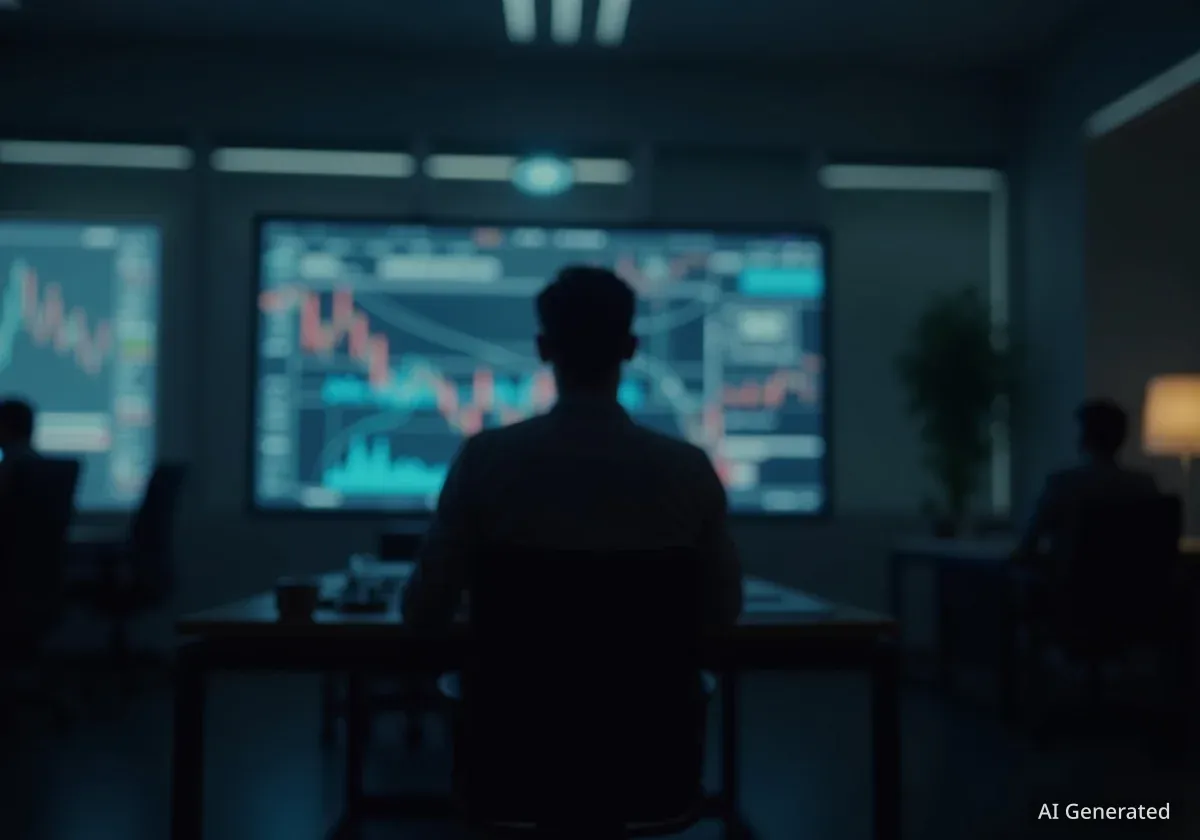Nevada is set to implement a new law, Assembly Bill 73, which will require political campaigns to disclose the use of generative artificial intelligence in their materials. The legislation, which was passed unanimously and takes effect in January, aims to increase transparency for voters by clearly identifying content that has been digitally created or altered.
Key Takeaways
- Nevada's new law, AB73, will require disclosure of AI-generated content in political campaign materials starting in January.
- The law allows candidates depicted in undisclosed AI content to seek a court injunction to stop its distribution.
- Introduced by Secretary of State Cisco Aguilar, the legislation aims to provide voters with accurate and reliable information.
- Experts have raised concerns about the law's enforceability, as it does not include financial penalties for violations.
New Regulation for Campaign Transparency
As generative artificial intelligence becomes more accessible, its use in political messaging is growing. Nevada's Assembly Bill 73 directly addresses this trend. The law mandates that any campaign material related to a candidate, group of candidates, or political party must clearly state if AI was used in its creation.
The legislation was introduced by Nevada Secretary of State Cisco Aguilar, who emphasized the need for voter confidence. "AI is becoming more sophisticated," Aguilar stated in an interview. He explained that the goal is to help voters identify the source of information and distinguish between authentic and generated content. "If it’s bad information or it’s a bad actor, you want the voter to know the source of that information," he added.
Legal Framework and Remedies
Beyond disclosure, AB73 provides a legal remedy for candidates who are targeted by undisclosed AI materials. They can seek an injunction to halt the dissemination of the altered images or videos. This provision gives candidates a tool to act against misleading content during a campaign cycle.
Aguilar noted that the idea for the bill originated shortly after he took office in 2023 and was influenced by the increasing use of AI in national politics, including deepfakes and voice cloning seen during the 2024 presidential election cycle.
A National Trend with Local Implications
Nevada is not alone in its efforts to regulate AI in politics. According to the National Conference of State Legislatures, it is one of 26 states that have enacted laws governing the use of AI in campaigns. Many of these state laws impose civil penalties or allow candidates to seek financial damages.
The use of AI has already appeared in Nevada's political landscape. For instance, the Washoe County Republican Party recently posted an AI-generated image on the social media platform X. The image depicted Attorney General Aaron Ford, a potential 2026 gubernatorial candidate, with a burning city in the background, accompanied by a critical caption. The Washoe Democratic Party condemned the post for relying on "dog-whistle politics."
In another example, Clark County School Board trustee Lydia Dominguez used manipulated video content in her campaign launch for a congressional seat. The ad featured Rep. Susie Lee and other Democratic politicians portrayed as mobsters. A spokesperson for Rep. Lee criticized the ad, stating, "Nevadans should be able to trust what they see with their own eyes. Unfortunately, in our age of AI this is no longer guaranteed." Under the new law, such ads would require an AI disclosure.
AI as a Campaign Tool
Political strategists see both opportunities and risks with AI. Democratic strategist Riley Sutton used AI to create fun, low-budget videos for Reno City Councilman Devon Reese's campaign, including one where Reese's face was superimposed on a professional surfer. "It opens creative doors that weren’t necessarily there before for lower budget campaigns," Sutton said.
Debate Over Effectiveness and Enforcement
While the law aims to curb misinformation, some political consultants question its practical impact. A significant point of discussion is the absence of financial penalties for non-compliance. Riley Sutton described the legislation as having "very little teeth," suggesting that determined actors could circumvent the rules by using anonymous accounts to distribute content.
"Bad actors are going to bad act," Sutton commented, highlighting the potential difficulty in enforcing the disclosure requirement against anonymous online posters.
Peter Koltak, another Democratic campaign consultant, noted the challenge of finding a "fine balance" between preventing misinformation and protecting legitimate political speech. He suggested a reactive approach may be necessary to see how campaigns adapt to the new technology and regulations.
The Psychology of AI Imagery
Experts suggest that AI-generated images can have a powerful effect on voters by making abstract political attacks feel concrete. Arthur Soto-Vasquez, an assistant professor at UNLV, explained that AI allows political strategists to visualize their rhetoric. "Previously, politicians are going to use metaphorical language... The AI image is used to visualize it, to make it real," he said.
Soto-Vasquez also observed that such images often reinforce pre-existing beliefs, even when viewers know they are fake. "If you agree with that worldview, you might say, ‘I know it’s fake, but it feels true to me,’" he explained.
An Evolving Digital Battlefield
Some observers view the rise of AI as an extension of long-standing campaign tactics. For decades, campaigns have used tools like Photoshop to alter images of opponents. Kenneth Miller, an assistant professor of political science at UNLV, noted that digitally manipulating visuals is not new. "I suppose the newer part would be it’s a little cheaper to do now," Miller said.
Republican political consultant Jeremy Hughes agreed, stating that campaigns have been digitally altering photos for a long time. However, he anticipates that the technology's influence will grow significantly in the coming years.
"In 10 years it’ll be a much bigger deal than it is now," Hughes predicted. "We’re just seeing the beginning of it." As Nevada and other states begin to navigate this new landscape, the effectiveness of laws like AB73 will be closely watched.





